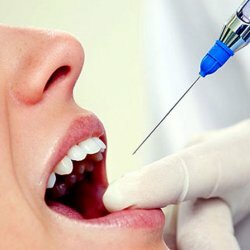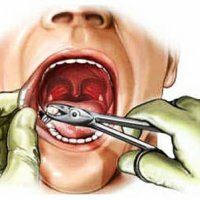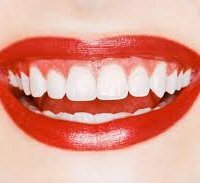Anesthesia in dentistry
 Modern dentistry has become less painful. Previously, patients were afraid to treat their teeth, since anesthesia was not always effective. Today, everything has changed, and patients do not feel any pain during treatment due to qualitative anesthesia. However, some people still have doubts about this, and they are afraid to visit the dentist. Today in this article we will tell you in more detail about anesthesia in dentistry.
Modern dentistry has become less painful. Previously, patients were afraid to treat their teeth, since anesthesia was not always effective. Today, everything has changed, and patients do not feel any pain during treatment due to qualitative anesthesia. However, some people still have doubts about this, and they are afraid to visit the dentist. Today in this article we will tell you in more detail about anesthesia in dentistry.
As a rule, anesthesia is used to remove the tooth or when it is sealed, when cutting the tongue of the tongue, during surgical manipulations in the oral cavity. Anesthesia not only helps the patient to feel more comfortable, not to be afraid and not to jerk, but also helps the doctor to carry out the necessary manipulations qualitatively and in a calm atmosphere. Even today, some patients may deny and convince that even with anesthesia it was painful to treat the teeth. But the whole point is that each of us has its own individual characteristics of the organism, which means that each person reacts differently to an anesthetic in different ways. Someone needs a large dose, someone less. For someone, some drugs are suitable, and others have an allergy. Such factors must be taken into account. The doctor always, before introducing the drug, is interested in whether you have any allergies to its components. Sometimes, if the drug is injected, but the patient continues to feel pain, his dose may increase.
Composition of anesthetic
Anesthetics have different composition. The most common painkillers currently used in dental clinics are Novocain and Lidocaine. We will not consider their composition, since these anesthetics have long been not considered the most effective. Modern clinics use higher quality imported drugs. Anesthetic - this is the main substance that is part of the drug. Anesthetics are available in the form of ampoules and carpules. As an anesthetic, "Mepivacaine hydrochloride" or "Artikain" is administered.
The vasoconstrictor is administered as an anesthetic to enhance the action of the anesthetic and to increase its duration. If this substance is absent, the anesthesia passes quickly and does not last very long. Vasoconstrictors are not contained in anesthetics, in which there is "Mepivacaine hydrochloride".
Let's figure out what kind of vasoconstrictors there are. The most common are adrenaline and norepinephrine. Adrenaline helps to reduce the decrease in anesthesia from the place where it was injected, that is, it keeps the medicine in the injection zone. For example, a 4% solution of "Articaine" with adrenaline after administration lasts about 45 minutes. If it is administered without adrenaline, it will last about five minutes. There is no narrowing of the vessels, and the active substance is quickly removed from the injection site.
Anesthetic agents contain preservatives and stabilizers. Surely each of you knows what it is. They are in food, cosmetics and the like. These substances help to extend the shelf life of the substance and protect some components from destructive processes. To this end, parabens, sulfites and EDTA are added to the anesthetics.
EDTA is an acid that protects the vasoconstrictor from destruction by aluminum and lead ions, which can be released from the glass from which the carpule is made. Sodium sulfite is added in order to protect the anesthetic from destruction by oxygen. Parabens are not added to all anesthetics, but only to those that come to us from countries with hot climates. Paraben is a strong allergen, so drugs with its content are used only in extreme cases.
How does anesthesia work?
It is necessary to understand the principle of the action of anesthesia in order to find out how effective an anesthetic is in this or that case. Anesthesia is a short-term loss of tissue sensitivity after exposure to chemical factors. In this case, such an agent is an anesthetic. The active substance contained in the preparation blocks nerve impulses. As a result, signals of irritation do not enter the cerebral cortex. The anesthetic envelops the nerve fiber in the injection zone, so the brain does not react at all. Once the substance is completely destroyed and begins to be excreted from the body, the sensitivity is restored.
Factors that lead to the impossibility of anesthetizing the tooth
Some patients are so much afraid of pain and dentistry that they are themselves setting themselves up for what hurts them. As a result, the doctor can not work calmly, as the patient jerks all the time and interferes with the process. Even after double or triple anesthesia, the slightest manipulation of the tooth results in pain in the patient. This suggests that the patient himself inspires an imaginary sensation of pain, since a double or triple anesthetic simply can not help acting.
Alcohol also adversely affects anesthesia. Some people are so afraid of visiting a dentist that before a visit to him a little drink. However, this can not be done in any case. After all, alcohol does not allow the anesthetic to block painful impulses. Sometimes the pain sensation can be eliminated by an increased dose of pain medication, but this does not always help.
Some people have a certain anesthetic and does not have any effect at all. This often happens as a result of getting used to the drug.
How to increase the effectiveness of anesthesia
In order not to be afraid of the dentist and feel comfortable at his reception, you need to follow certain rules. First and foremost, you need to overcome your fear of the dentist. You can subconsciously adjust yourself to the wrong result. Therefore, if you are very scared, then before a visit to the doctor take tranquilizers, which cause inhibition of the nervous system. They relieve tension and fear, create a relaxation effect. Many tranquilizers can be bought only on prescription, however some in the pharmacy are sold without it. For example, "Tenoten".Dentists to people with high anxiety recommend taking it according to this scheme: first you need to take two tablets and dissolve them under the tongue. After that, you need to take two more five minutes later. You should start taking them twenty minutes before your doctor visits. If a person does not have a strong excitement, then according to the same scheme one should take one tablet of the drug.
Do not drink alcohol before going to the dentist. It not only blocks the effectiveness of anesthesia, but also interferes with the work of the doctor. If a person is accustomed to a drug, then it simply needs to be replaced by another, safer or more potent.
It happens that a person has a genetic intolerance to anesthetics. In such cases, the only way out of this situation will be to use anesthesia - the total immersion of a person in a dream. However, such a procedure has a lot of contraindications and it is carried out in a hospital.
Before a visit to the dentist, set yourself up positively. Prepare the mouth: brush your teeth with toothpaste, and then use flossing. Do not take alcohol and any drugs. Behave calmly and let the doctor do his work.



